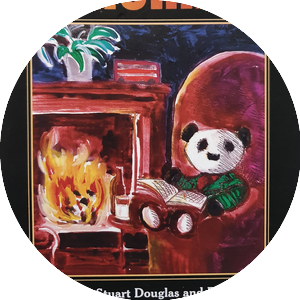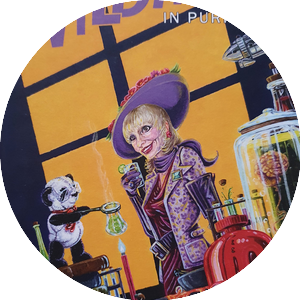Motivation
As part of his process for editing Short Trips: Transmissions, Richard Salter set up a little chatroom for the writers involved. It died off after the book was published, but in 2009 one of the last things he did was let people know about an opportunity he’d spotted. A new small press had been set up in Canada called Slash Books, who were looking for gay and/or lesbian erotica with a uniform theme. It amused my work colleagues at the time, but I’ve always been keen on writing romances and at the time I was particularly interested in finding work outside of Doctor Who.
Inspiration
My day job at the time was in Manchester, and I often walked past the statue of Alan Turing in the Gay Village. I’d known about the story of his life for a long time and had always been keen on writing something about it, but at that time the British Prime Minister Gordon Brown had just offered an apology for Turing’s arrest under anti-homosexual laws. It brought the issue to the front of my mind. As Turing died in Wilmslow, Greater Manchester, that would also give me a setting that I didn’t think any of my Canadian competition would be using.
Getting the Story
The story itself came very easily. I knew I wanted to treat Turing as historically accurately as I could, which meant he wouldn’t be the focus of the love story. Given the uniformed theme of the collection and Turing’s history, it was obvious to make my two lovers policemen. As the brief was for erotica, I knew there would have to be a sex scene somewhere in the collection. That mapped the story out fairly clearly in my mind: two policemen inspired by Turing’s tragedy to ignore the world and fall in love.
The Pitch
I wrote a one paragraph pitch of the story and emailed it in to Slash Books by their deadline. They got in touch again fairly soon after to say they were interested, and asked me to send a copy of the story and a signed contract to them. With me being in Manchester and them being in Canada, this involved a little more complication than usual, but I managed to send them off. Then I waited for a reply. And waited. Eventually, the editor got back in touch via a group email saying that they’d had an “emotional” couple of months, but would be sending notes on the stories out soon.
Editorial
If I’m honest, I didn’t hold out much hope of seeing any return on the effort I’d put in. Small press publishers come and go remarkably quickly, and I was already resigned to the idea that this one might be about to go. But shortly after that first group email, I received another one saying that the editor had read my story and really enjoyed it: in fact, they only had one small change to make, and that was just to make something in the British setting a little clearer to an international audience. That done, we got into discussions on payment and – after a few more delays – that also arrived, along with an electronic copy of the collection.
What Happened Next?
Everything went quiet again after that, and the book wasn’t officially published until nearly a year later. But when it was, I got another email from the editor saying they were looking for submissions for another collection, this time with a theme of truth and dare. My initial instinct was not to pitch for this one: I’d got the impression that the publisher was more than a little unstable, and the risk of writing a story for no return worried me. But it was very good money that they offered – a lot more than I would have got for writing much longer things anywhere else (which obviously fed into the impression that the publisher wouldn’t be around for long).
I decided to be pragmatic, and pitched an idea that was heavily based on another story I was already working on, with a gay romance grafted onto it. The editor got in touch to acknowledge the pitch, and said that she thought it was pretty strong. No official commissioning was going to take place until after the submission deadline had passed, though, so I should just hold tight and wait to hear.
That was the last I heard from them.
I wasn’t too surprised when I checked a while later and found that their Twitter account and website hadn’t been updated for months, and that the online bookstore they sold their books through had closed down. I assumed that the money or enthusiasm had ran out somewhere in the middle of making the second collection, and that had been the end of it. However, in fact that second collection had been finished and was – I believe – published before they shut down.


